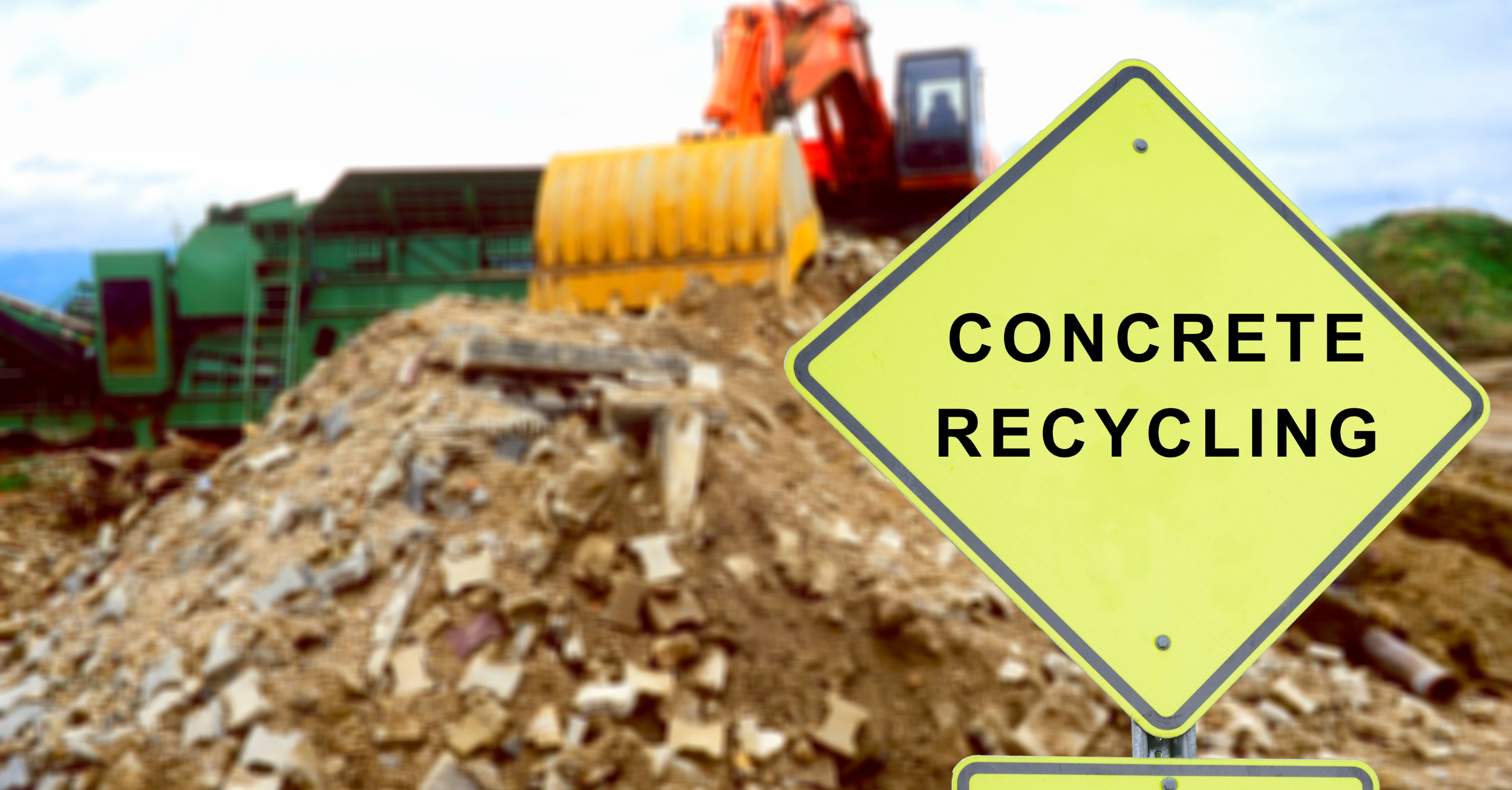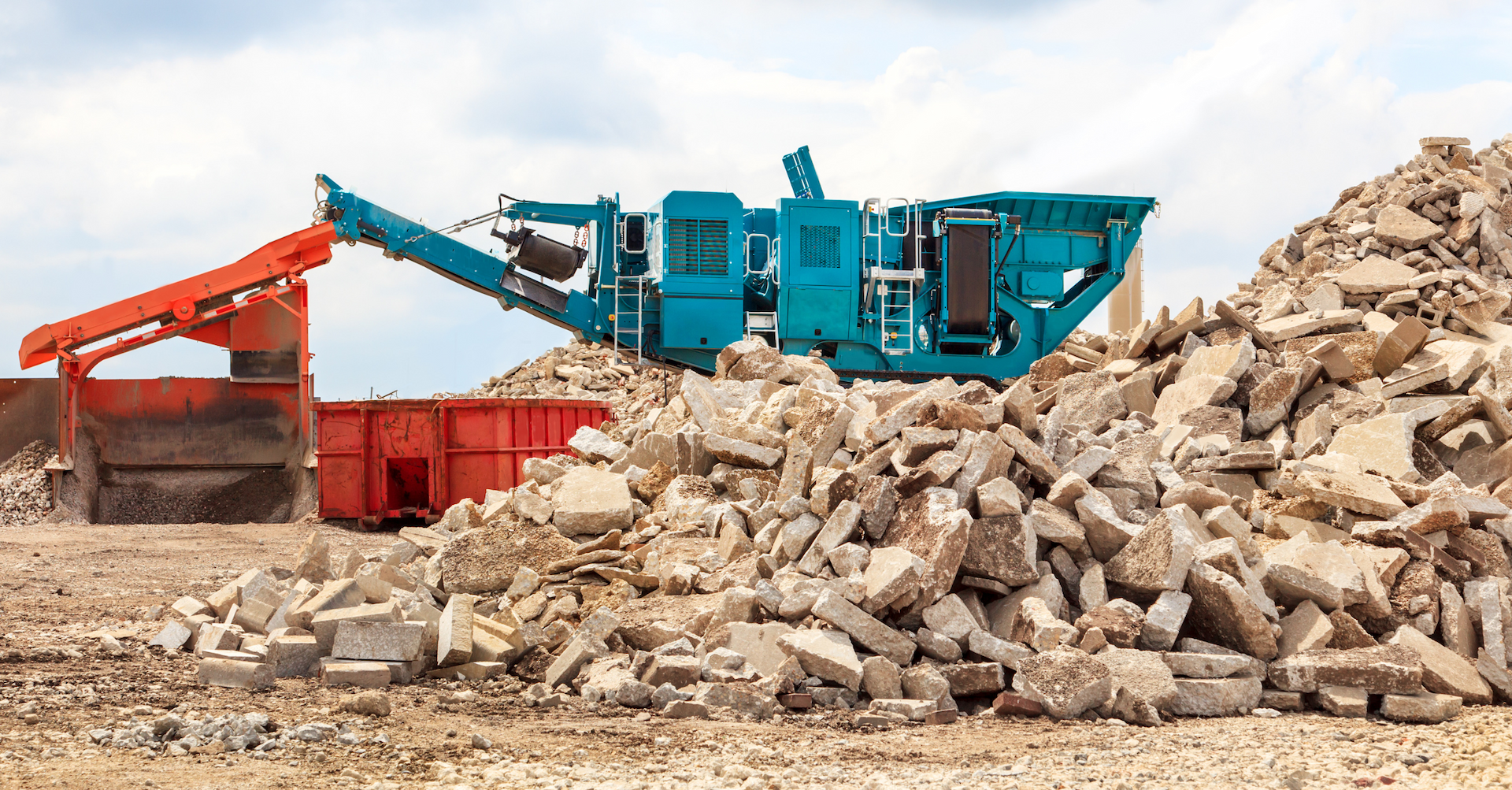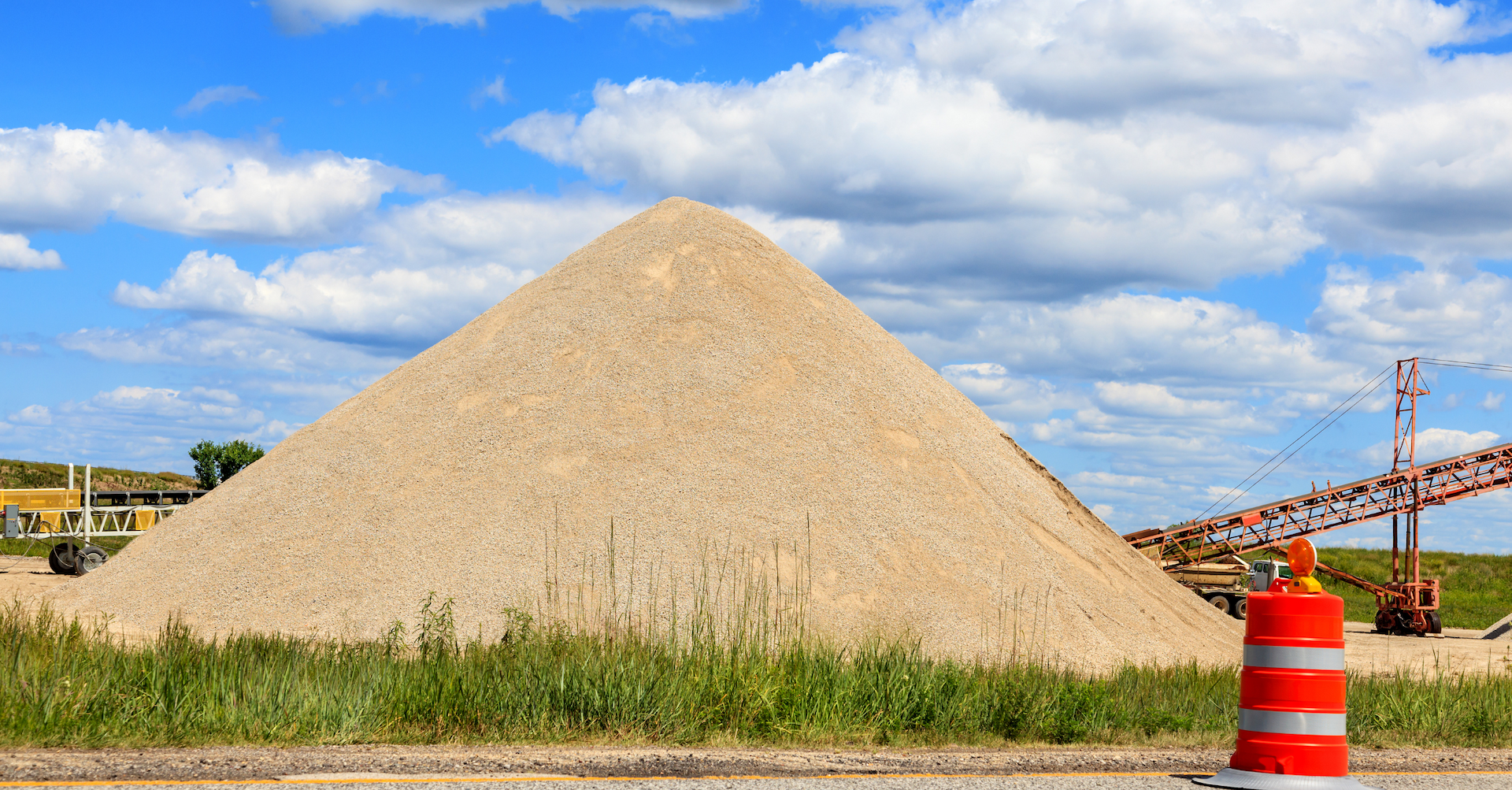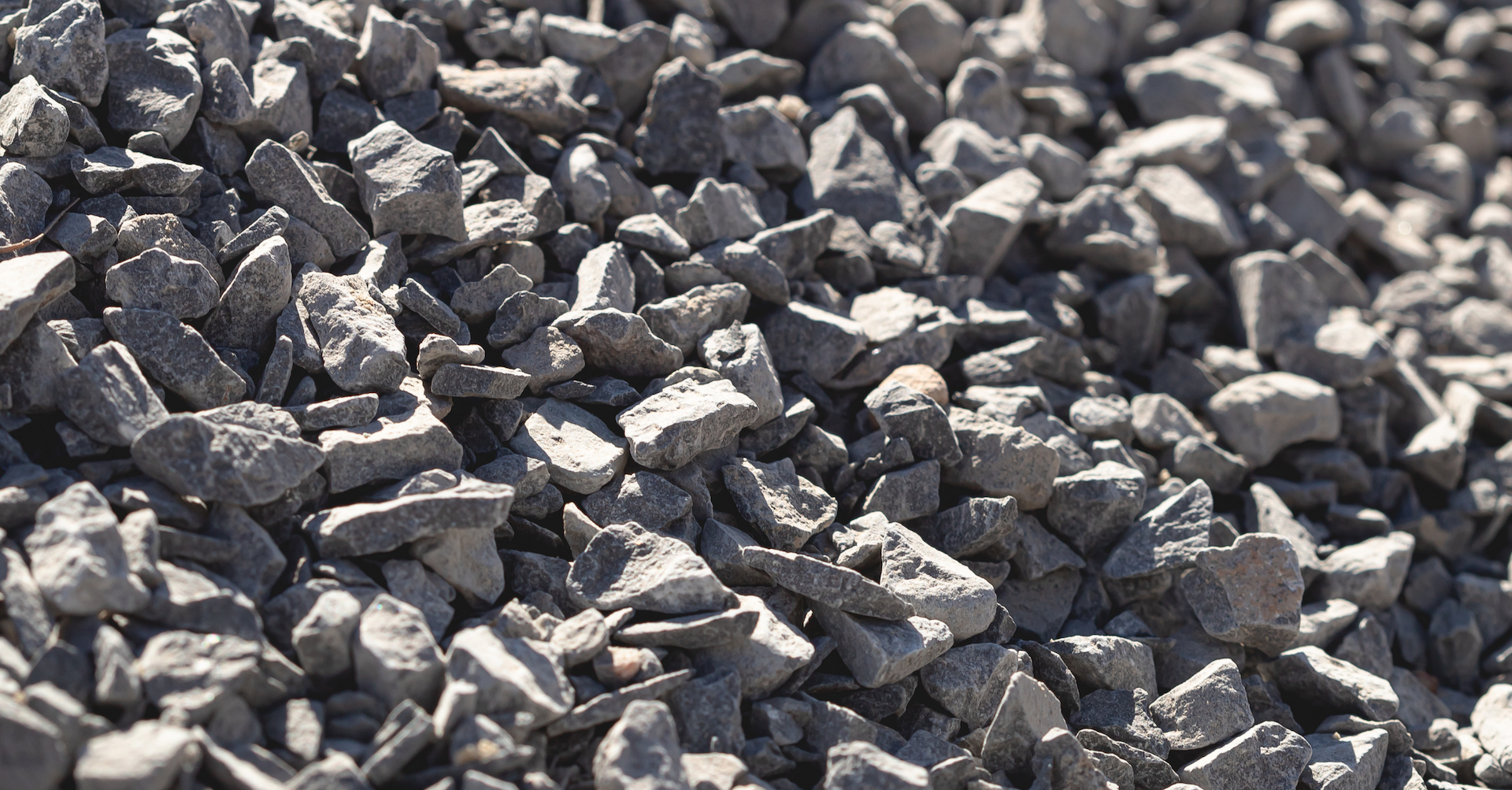Are you a contractor?
Join our network and attract real clients!
Table of Contents
4 min read
The Benefits and Uses of Recycled Concrete


4 min read
The Benefits and Uses of Recycled Concrete
Interior renovationsThe Benefits and Uses of Recycled Concrete
Did you know that concrete could be recycled? Well, yes siree Bob! Concrete recycling is a technique used to salvage concrete waste. It’s an alternative to disposing of it in landfills that happens to be both cost-effective and eco-friendly. So, let’s zero in on concrete recycling, a practice that’s still, to this day, little known in Canada.
Recycled Concrete: What Is it Exactly?

Source: Canva
Globally speaking, concrete is one of the most exploited materials due to its notable strength and its use in almost all infrastructures. However, its environmental impact is highly criticized. The Global Concrete and Cement Association (GCCA) states that said material is responsible for 7% of the planet’s CO2 emissions. Luckily, concrete’s environmental impact can be reduced by recycling it instead of letting it go to waste. As such, a whole series of techniques are used, thereby salvaging inert materials produced by concrete. In other words, concrete is recycled and reused on new worksites.
Recycled concrete offers to same properties as traditional concrete. It’s just as resistant, easy to work, as well as viscous enough. In terms of quality, it doesn’t fall short of natural concrete aggregate. However, note that recycled concrete is limited to a few fields of use, and can’t be used on all worksites. It can be used on construction projects requiring a tensile strength of C30/37. Concrete grades with a lower tensile strength may be used during freeze cycles.
There are two types of recycled concrete:
Concrete issued from construction waste
This includes waste from precast plants or ready-to-use concrete. The waste in this category comes in a variety of configurations: fresh concrete waste, cured concrete waste, leftover manufacturing waste, or worksite scraps. It can either make its way back to precast plants (as it’s done with fresh concrete) or be salvaged in crushing screening plants.
Concrete issued from demolition waste
Here too, concrete residue is recycled in crushing screening plants. The thin part of concrete is typically used to manufacture binders. The recycling process can result in new aggregates that can be used to manufacture new concrete. And, as a matter of fact, said aggregates may be employed to replace naturally occurring gravel and sand.
How Is Recycled Concrete Made?

Source: Canva
Salvaging concrete waste is a process that’s relatively simple and done in 3 basic steps:
1st step: Sorting
The first step, prior to recycling concrete, is to proceed by sorting the concrete waste to separate it from other materials. This is done with a special type of sifter found in a wheel loader’s bucket to sort concrete residue from other waste materials (pieces of wood, metal bars, or plastic films).
Note: Sorting materials is a crucial step in concrete recycling. It’s done on two levels: first during the deconstruction of infrastructures, then when the resulting residue is sorted in crushing plants.
2nd step: Crushing
After the residue is sorted, next comes the recycling stage, which is the crushing part of it. The materials are first lightly ground with a hydraulic chisel. Then, the pieces are reduced to smaller fragments in a crusher, to obtain a grain size of 60 millimetres. Next up is the screening step, which consists of sorting the ground materials based on their grain size.
3rd step: Dusting
Lastly, the dusting phase is typically done by wet processing. And there you have, ready-to-use recycled concrete.
Using Recycled Aggregates or Crushed Concrete

Source: Canva
Recycled concrete can be used for many different purposes in the construction industry. In fact, it can be used to:
build roadway foundations;
build sidewalks;
backfill pipe trenches;
manufacture recycled concrete aggregates;
make landscaping construction materials;
rubblize concrete, which consists of converting old concrete to make a base course;
manufacture pavers, pots, benches, etc.
Recycled concrete can help minimize rainwater runoff.
What Are the Advantages of Recycled Concrete?
Even though recycled concrete is an uncommon practice in Canada, criticized by some, it’s still an alternative to disposing of it in landfills, and it has numerous benefits:
Reduces the use of natural resources (concrete) by close to 30%: This is a massive advantage when recognizing that enormous amounts of aggregates are used every year.
Preserve the environment: Reduces mineral waste, mining, and industrial activities linked to the manufacturing of traditional concrete.
Reduces transportation costs: Concrete recycling centres are usually located in urban areas near construction zones.
Significant time-saver: Recycled concrete can be made and used rather quickly, which significantly reduces construction timelines.
How to Standardize the Use of Recycled Concrete
Recycled concrete is a material with beneficial properties for the construction industry, but it remains relatively underutilized due to preconceptions. To standardize and further promote its use, the Province of Quebec could consider implementing regulations that mandate the use of concrete made from salvaged aggregates for constructing public buildings, similar to practices in other countries such as Switzerland.
Get new contracts for your construction or renovation company
RenoQuotes.com can help you get new contracts. We receive new project proposals from clients seeking top-rated and trustworthy renovation professionals like yourself. To get started, simply fill in the form on our homepage (it only takes a few minutes) and receive information regarding potential clients by way of our services.
Dial 1-844 828-1588 to speak with one of our customer service representatives.
Last modified 2023-11-07
Looking for something else?
Related articles
The latest industry news, interviews, technologies, and resources.

RenoQuotes.com • 08 Mar 2024
Aside from the shower, the toilet consumes the most water out of all household appliances. Households with multiple toilets consume gallons of water every day, watching it literally wash down the drain.

RenoQuotes.com • 07 Nov 2023
You may have purchased an old house with an equally aged structure. Despite completing renovation work over the years, it’s still likely that the household plumbing pipes are visible. So, the question is, how can you make exposed piping more aesthetically pleasing? Here are five hacks to conceal your plumbing or make it a little more visually appealing.

RenoQuotes.com • 07 Nov 2023
Converting your roof to capture the power of the sun’s energy can benefit your home and wallet depending on how you go about it. Over the years, solar panels have become the go-to option for producing renewable energy.

Christime Simard • 07 Nov 2023
A veritable Alibaba cave for all the foodies and apprentice cooks of this world, the pantry should be as practical as it is aesthetic. Between simplicity and modernity, its layout deserves thought and organization to make your kitchen experience as pleasant as possible.

RenoQuotes.com • 07 Nov 2023
You may have watched a home renovation program and think that you know a thing or two about how long it takes to refurbish and remodel a house. Well, if you’re basing your knowledge off this half-hour program, you may want to do some additional research.